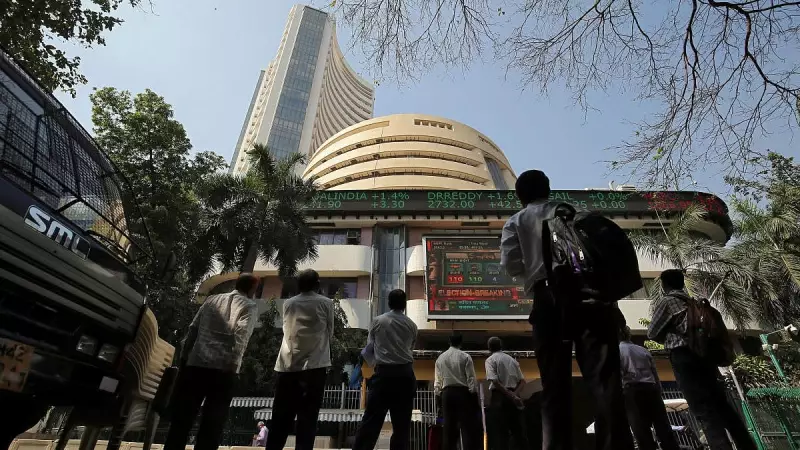
Indian stock markets opened the trading session on a bearish note Thursday, mirroring weak global cues and extending losses from previous sessions. The benchmark indices faced sustained selling pressure as foreign institutional investors remained net sellers in the domestic equity markets.
Market Performance Highlights
The BSE Sensex plummeted significantly, dropping over 400 points during early trade to hover around 72,900 levels. Similarly, the broader Nifty 50 index witnessed substantial declines, falling below the 22,150 mark as selling pressure intensified across sectors.
Key Factors Driving the Market Decline
Foreign Fund Exodus Continues
Foreign Portfolio Investors (FPIs) maintained their selling streak, pulling out substantial capital from Indian equities. This persistent outflow has significantly dampened market sentiment and contributed to the downward pressure on stock prices.
Global Market Weakness
Asian markets displayed mixed but largely negative trends, with several key indices trading in the red. The uncertain global economic environment, particularly concerns about interest rate trajectories in developed markets, has created risk-averse sentiment among international investors.
Rising Crude Oil Prices
Brent crude futures climbed above $83 per barrel, raising concerns about inflationary pressures and potential impacts on India's current account deficit. Higher oil prices typically negatively affect import-dependent economies like India.
Sectoral Performance Analysis
The market breadth remained weak, with several key sectors witnessing pronounced selling pressure. Banking and financial stocks, particularly private sector banks, were among the worst performers. Information technology stocks also faced headwinds amid global technology sector uncertainties.
Expert Market Outlook
Market analysts suggest the current phase reflects a combination of profit-booking after recent rallies and genuine concerns about valuation premiums in the context of global economic uncertainties. The absence of fresh positive triggers has left markets vulnerable to external shocks and foreign fund behavior.
Trading patterns indicate that domestic institutional investors have been attempting to provide some support, but their buying has been insufficient to counter the substantial selling by foreign counterparts. Market participants are closely monitoring economic data releases and central bank communications for directional cues.





